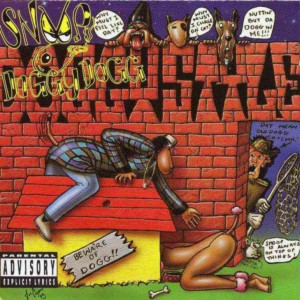… I was already neck-deep in hip-hop culture.
The facts are simple: I was raised with hip-hop. That was the emerging culture my parents were immersed in as teenagers in the early 80s*, and even to this day there are older songs I hear that sound like lullabies to me. Old tracks by LL Cool J, the Sugarhill Gang, Kool Moe Dee, even old Common (back when he was Common Sense) fill me with a strange sense of familiarity and peace. My earliest memories are filled with the sweet mana of hip-hop.
So, it should come as no surprise that my earliest encounters with sexism also had a hip-hop chaser.
When I was about ten years old, I remember being at one of my mother’s friends house. They were doing hair in the kitchen, so they expected me to go and amuse myself by playing with the woman’s eleven year old son, Bryan. I was rapidly approaching the age when I could make my own music choices, so I was often getting in trouble for raiding my parent’s CD collections. That day, a lot like any other, I had grabbed a handful of CDs when my mom wasn’t looking, a copy of Word Up magazine, a few books (I always had a book or two on hand) and headed to the basement to try to find music videos on TV.
Bryan was also bored, alternately ignoring me and fighting with me, generally over whose turn it was to play their CD on the one stereo in the basement with a temperamental attitude. We both knew that at any moment, the CD player could decide to stop reading CDs so the battle quickly took on epic proportions.
After I lost the most recent round of slapboxing over the stereo, I settled onto a couch with a book to read while Bryan queued up a brand new CD that was just released.
“Stupid,” he taunted me from across the room. “You need to stop looking all dumb and learn to start acting like a girl. You need to look like this!”
He walked over, and shoved the CD cover in my face.

Yes, the infamous Doggystyle cover.
The implication – that I was to emulate the sexualized bitch (literally!) depicted on the cover, reduced to a pair of shapely haunches for the pleasure of the males in my surrounding area – made me shake with disgust. To this day, I have never listened to Doggystyle in full, nor have I allowed a copy of the CD to stay in my line of sight.
Now, this was not the first time I was confronted with a blatant display of misogyny from my favorite art form and it certainly will not be the last. At the time, I had only vague ideas about sexism, no concept at all of misogyny, only a tenuous grasp on internalized self-hatred, and no words with which to understand that experience. I knew I was angry, I knew I felt disgusted, I knew I felt something else that I couldn’t name yet, but the end result was the same.
This was not acceptable. And I had to do something.
But what could I do?
I thought for a second – but only a second, because time is of the essence in these kind of situations – and made a decision.
I grabbed my stuff, smacked him as hard as I could and hauled ass up the stairs before he could catch me. I tore past my mom in the kitchen, went into his room (that also had a CD player), locked the door and set up camp.
I still felt kind of nasty and shaky, but vindicated. I pulled out one of my CDs and appraised the cover.
Maybe I didn’t have the words to speak, but T-Boz, Left Eye, and Chilli did.
I turned up “Hat to the Back” and found myself mouthing along to the lyrics:
Being that I am the kinda girl that I am
Nobody can make me do what I don’t want to
I can be myself a lot and I’m proud of what I got
So I’ll never change for you
[…]
That’s the kinda girl I am
Don’t cha know I really don’t give a damn
Let me be me for me and not what I’m supposed to be
So I’m gonna do what I wanna do
Cause dumb rules are left for silly fools
That’s the kinda girl that I am – ohh!
On one hand, hip-hop keeps throwing misogyny in my face like it’s supposed to be there, promoting people with no message, no clue, people who would be happy to keep a hyped-up version of gender roles as the predominant cultural narrative.
But on the other hands, hip-hop also gives me the space to develop my skills and the room to bomb back.
Though I didn’t realize it then, that day was my awakening as a hip-hop feminist.
People were always going to try to stick me with something I’m not, misread me, underestimate me, oversexualize me, minimize me, force me to fit into their view of the world.
But I’m not going out like that.
And y’all better recognize.
*When I am telling these stories about how I grew up, just keep in mind that my parents were teenagers when they had me. I was born in 1983, when my mother was sixteen and my father was nineteen. That simple fact is something I am going to refer to time and time again, because it continues to shape my understanding of the world.
—
Hat 2 Da Back – TLC (from Ooooooohhh-On The TLC Tip)